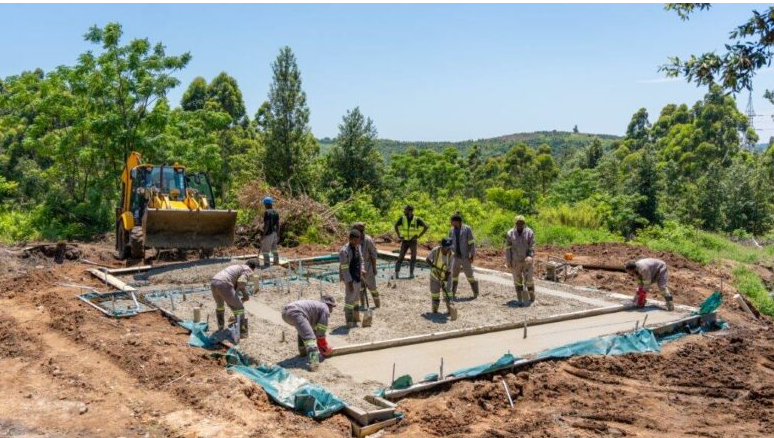Far-reaching changes to training regime may blindside unprepared mines

25-07-2023
Read : 405 times
The Content Engine
Source
Enterprising mines and quarries have already started preparing for significant changes that are set to take place in the training sector. These will, inevitably, have an impact on the human resource development component of social-labour plans (SLPs), the basis upon which mines and quarries are awarded mining rights.
Existing NATED report N1, N2 and N3 programmes that are provided by Technical Vocational Education and Training colleges are being phased out. The last date for registration for these courses is June 2023. These will be replaced by new Quality Council for Trades and Occupation (QCTO)-registered occupational qualifications in relevant engineering fields.
Notably, these qualifications will be more closely aligned with the skills needs of a rapidly changing economy. As well as imparting technical proficiencies, they focus on teaching creative and critical thinking skills. This is in addition to interpersonal skills, as well as the ability to write, present and negotiate. Leaners will also gain the skills that they need to present a reasoned argument, as well as ask the correct questions and seek out the answers.
However, adequate preparation is necessary to seamlessly navigate these changes to avoid disruptions to planned training for mining employees and unemployed members of communities who reside within the operational footprints of mines. This is as part of mines’ human resource development obligations outlined in their SLPs.
“Worryingly, there are still many mines and quarries that have not started preparing for the new system, incorrectly assuming that the transition will be handled solely by their training providers. Considering that there are still so many uncertainties regarding how the transition needs to be handled, all stakeholders need to be involved. There is nothing training service providers can do if apprenticeships that have been planned long in advance by mines, considering the five-year planning horizon of SLPs, are no longer applicable. This is a potential obstacle in the social-labour planning process if not handled appropriately. Therefore, to avoid being blindsided, it is important that mines, together with their training service providers, seek further clarity from all relevant stakeholders as to how to navigate this process. They include the QCTO, Department of Higher Education and Training (DHET); the Department of Mineral Resources and Energy; and the Mining Qualifications Authority (MQA),” Marco Maree, Expert Training & Development Advisor of Triple E Training, says.
Triple E Training provides QCTO-accredited foundational learning competence (FLC) training to the mining industry. FLC training better prepares employees and unemployed community members for occupational training at National Qualifications Framework Levels 2 to 4 by imparting foundational communication and mathematics skills. It is compulsory for employees or community members who have not completed matric with maths and English literacy as subjects to first undergo FLC training before enrolling for QCTO’s new occupational training courses. Individuals who have completed Grade 9 or hold an Adult Education and Training (AET) Level 4 certificate are eligible for FLC training. Individuals who have completed AET Level 3 can also apply for FLC training. However, they need to first undergo a placement assessment by a QCTO-accredited training provider to determine their readiness for the training.
Maree says that the new system has been lauded by industry in general. This is considering the focus on ensuring quality apprenticeship training to address acute skills gaps in the country.
These far-reaching changes to the current apprenticeship training system are being driven by the DHET. It has extended the mandate of the QCTO to include all occupational-related qualifications that are under the custodianship of the South African Qualifications Authority (SAQA). This process commenced in 2010 and is anticipated to be completed this year.
Under the new system, the QCTO will also govern quality assurance processes. This will ensure that individuals are equipped with relevant and transferrable competencies to enhance lifelong employability. These include learners, professionals, workers, the unemployed and those individuals who are not in employment, education and training.
Extending the QCTO’s mandate makes sense. Bear in mind that the QCTO has always been specifically focused on occupational training and is, therefore, also closely aligned with the Department of Higher Education and Training (DHET). SAQA’s mandate, on the other hand, has been broader by including all education and training and, thus, diluting its focus on occupational training.
Like the other Sector Education and Training Authorities, the MQA is licensed until 2030 to fulfil its mandate and, in doing so, reports to the QCTO. It does not assure providers for occupational qualifications, but will continue to administer Work Place Skills plans and Annual Training Reports. This is in addition to allocating grants and funding and the phasing out of legacy qualifications. Under the QCTO, it will also serve as Degree Qualification Profile and Assessment Quality Partners for occupational qualifications.
“The training and skills development opportunities provided by mines are uplifting poor communities and tapping into talent of their employees to enable them to grow and develop in their careers and as individuals. These are the ultimate objectives of the human resource development component of SLPs. An important driver of redress and transformation, it is, therefore, essential that this process continue without undue interruption,” Maree concludes.
For more information contact:
David Poggiolini
Debbie Poggiolini
Recent News
Here are recent news articles from the Building and Construction Industry.
Have you signed up for your free copy yet?









